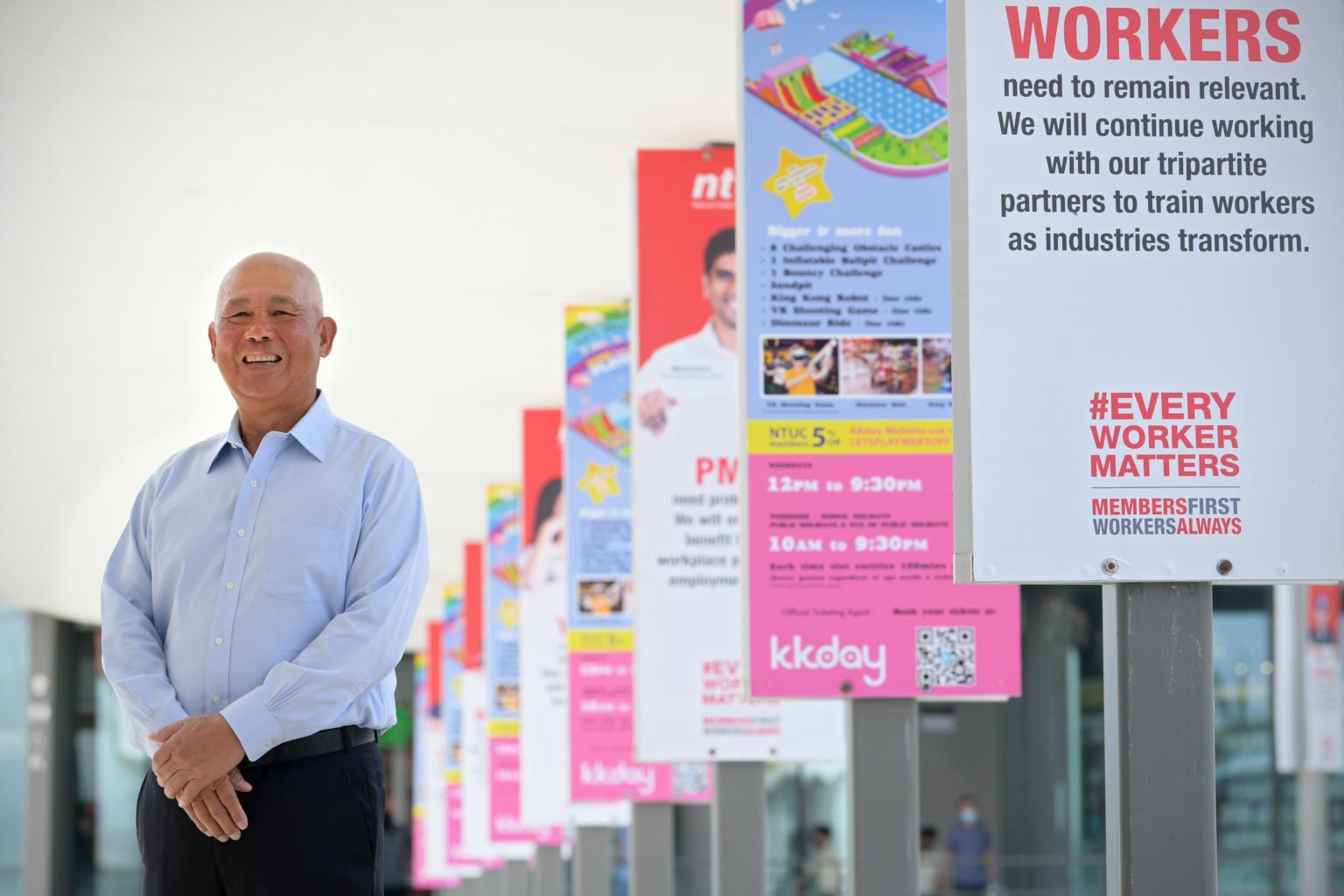Recipient of top NTUC May Day Award champions fair treatment of workers
Sign up now: Get ST's newsletters delivered to your inbox

Veteran businessman Bob Tan has been a leading light in the trade union movement for many years.
ST PHOTO: NG SOR LUAN
SINGAPORE - Treating workers fairly is the cornerstone of the partnership between employers, unions and the Government, said veteran businessman Bob Tan on Thursday (May 19).
Mr Tan, who is chairman of several firms, including Ascott Business Trust Management, Sentosa Development Corporation and SBS Transit, has also been a leading light in the trade union movement for many years.
Indeed, it was his contributions to the labour union in the NTUC Club management council that earned him the top honour at the NTUC May Day Awards held at Fairmont Singapore on Thursday.
Mr Tan, 70, has been involved with the National Trades Union Congress (NTUC) for nearly 30 years and helped to develop recreational facilities for its members, such as Downtown East and Wild Wild Wet. He was also vice-president of the Singapore National Employers Federation for about 15 years.
Awards were conferred on 149 union leaders, tripartite partners and model workers, the highest number of recipients on record. They include Ministry of Home Affairs Permanent Secretary Pang Kin Keong; the late Richard Magnus, who was given a posthumous award for his work as former chairman of the Public Transport Council; DBS Bank and Changi Airport Group.
NTUC president Mary Liew said at the ceremony: "Throughout the pandemic, the labour movement and our tripartite partners have worked hard together in solidarity to help our companies, keep our workplaces safe and cushion the impact of Covid-19 on our working people.
"We can and should be proud of the work that we have done to advance the cause of workers in the areas of wages, welfare and work prospects."
She hosted the ceremony alongside NTUC secretary-general Ng Chee Meng.
Mr Tan told the media that workers should always be the focus of the tripartite partnership between firms, unions and the Government: "In the early days, it was just a matter of representing employers (for me), but then over time I realised that the cornerstone of tripartism is really the workers.
"If you don't have committed workers, you don't have a business... If your business depends on exploiting workers and paying them less than the market pay, it is not sustainable."
He added that when times are tough and pay freezes or cuts are inevitable, workers will also respond to fair employers by accepting the situation and helping the business environment to rebound.
"It's not something that we can take for granted because new generations of employers keep coming up. I think this is where the tripartite institutions can help employers to really think about how can they be fair, that they should pay competitively and look at how they can increase the productivity of the workers."
When asked about the manpower crunch that businesses are facing, Mr Tan said productivity means that employers can have fewer workers while paying them more.

Slug: santuc20 ST photo: Chong Jun Liang From left: Ng Chee Meng, Secretary-general NTUC presents the Distinguished Service (Star) award to Bob Tan on May 19, 2022 NTUC May day awards ceremony
PHOTO: ST
"In the short term, we do have an issue because after Covid-19, many of the foreign workers have decided to go back... We will see that for six months to a year, there will be significant disruption to the availability of workers," he said.
To resolve this, the tripartite partners have to work together to plug the gaps, which includes the Government looking into policies that make it easier for firms to get workers during this interim period, he suggested.
On the side of local workers, the partners also have to look for ways to increase productivity and pay workers more, especially with the rising cost of living, he said.
Meanwhile, flexible work arrangements can help to bring Singaporeans who are not working back into the labour force, Mr Tan added.
"In the old days, employers were not psychologically geared towards remote working. But in the last two to three years, we all learnt how to do that. We have to try and institutionalise some of the good things that we've done and bring some of these people on board."
He believes people still need to return to the office physically, but not every day.
"Each company will have its own way of working and will need to look at what can be done remotely and what can be done together," he said.
"The success of a business does not depend on whether you can see everybody physically in front of you, but on your output."


